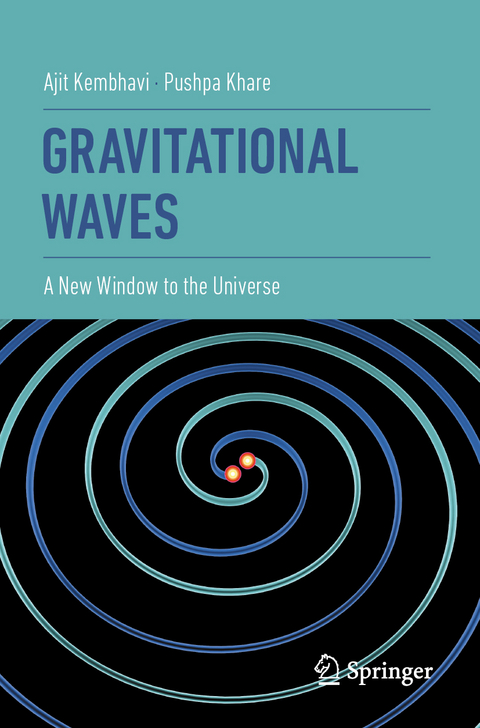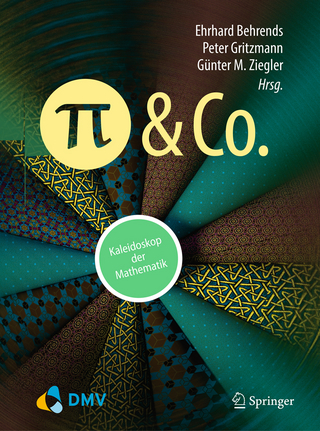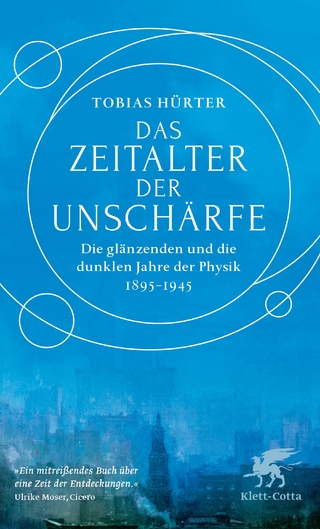
Gravitational Waves
Springer Verlag, Singapore
978-981-15-5708-8 (ISBN)
Ajit Kembhavi is Professor Emeritus and was a Raja Ramanna Fellow at the Inter-University Centre for Astronomy and Astrophysics (IUCAA), Pune. He was Director there until August 2015. He did his Ph.D. from TIFR, Mumbai, and was a post-doctoral fellow at the Institute of Astronomy, Cambridge. Professor Kembhavi is a distinguished astronomer who works on galaxies, quasars and other extragalactic objects, various areas of high energy astrophysics, X-ray and radio pulsars. He has published a large number of research papers and several books. Professor Kembhavi has been a member of the Space Commission and is presently a member of the ISRO’s Apex Science Board. He is Vice-President of the International Astronomical Union and former President, Astronomical Society of India. He was Chair of the International Virtual Observatory Alliance, Chair of the Scientific Council of the Astronomical Data Centre at Strasbourg and Chair of the Council of the Indian Institute of Astrophysics. He is a Fellow of the Indian Academy of Sciences and the National Academy of Sciences, India. He can be contacted at akk@iucaa.in Pushpa Khare is M.Sc. (Physics), gold medalist, from Indore University. She did her Ph.D. in Astrophysics from the Tata Institute of Fundamental Research, Mumbai, and her postdoctoral work at the Max Planck Institute for Astronomy at Munich, Germany, and at the University of Manchester, UK. She then joined as professor of Physics at the Utkal University, Bhubaneswar, Odisha, in 1983. After retiring from there in 2010, she was CSIR Emeritus Fellow at the Inter-University Centre for Astronomy and Astrophysics (IUCAA), Pune, for four years. She had been an associate of IUCAA, since its inception in 1990 till her retirement. She has mainly worked on the interstellar medium, quasar absorption lines and gravitational lensing, and has published more than 50 research papers in international peer-reviewed journals. She has been a visiting professor at several universities around the world including University of Illinois at Chicago, University of South Carolina, University of Chicago, University of Osaka, etc. She has presented her work in several national as well as international conferences including those at Shanghai, Kunming, Chicago, Columbia and Marseilles. She can be contacted at pushpakhare@gmail.com
1. Introduction.- 2. Electromagnetic radiation: the key to understanding the universe.- 3. Gravity: Force That Governs the Universe.- 4. Gravitational Waves: the new window to the Universe.- 5. Compact Sources of Gravitational Waves .- 6. Evidence for Gravitational Waves: The Binary Pulsar.- 7. Gravitational Wave Detectors.- 8. Gravitational Wave Detection.- 9. The LIGO-India Project.
| Erscheinungsdatum | 14.08.2020 |
|---|---|
| Zusatzinfo | 38 Illustrations, color; 12 Illustrations, black and white; XXVI, 161 p. 50 illus., 38 illus. in color. |
| Verlagsort | Singapore |
| Sprache | englisch |
| Maße | 155 x 235 mm |
| Themenwelt | Sachbuch/Ratgeber ► Natur / Technik ► Naturwissenschaft |
| Naturwissenschaften ► Physik / Astronomie ► Allgemeines / Lexika | |
| Naturwissenschaften ► Physik / Astronomie ► Relativitätstheorie | |
| ISBN-10 | 981-15-5708-X / 981155708X |
| ISBN-13 | 978-981-15-5708-8 / 9789811557088 |
| Zustand | Neuware |
| Informationen gemäß Produktsicherheitsverordnung (GPSR) | |
| Haben Sie eine Frage zum Produkt? |
aus dem Bereich


